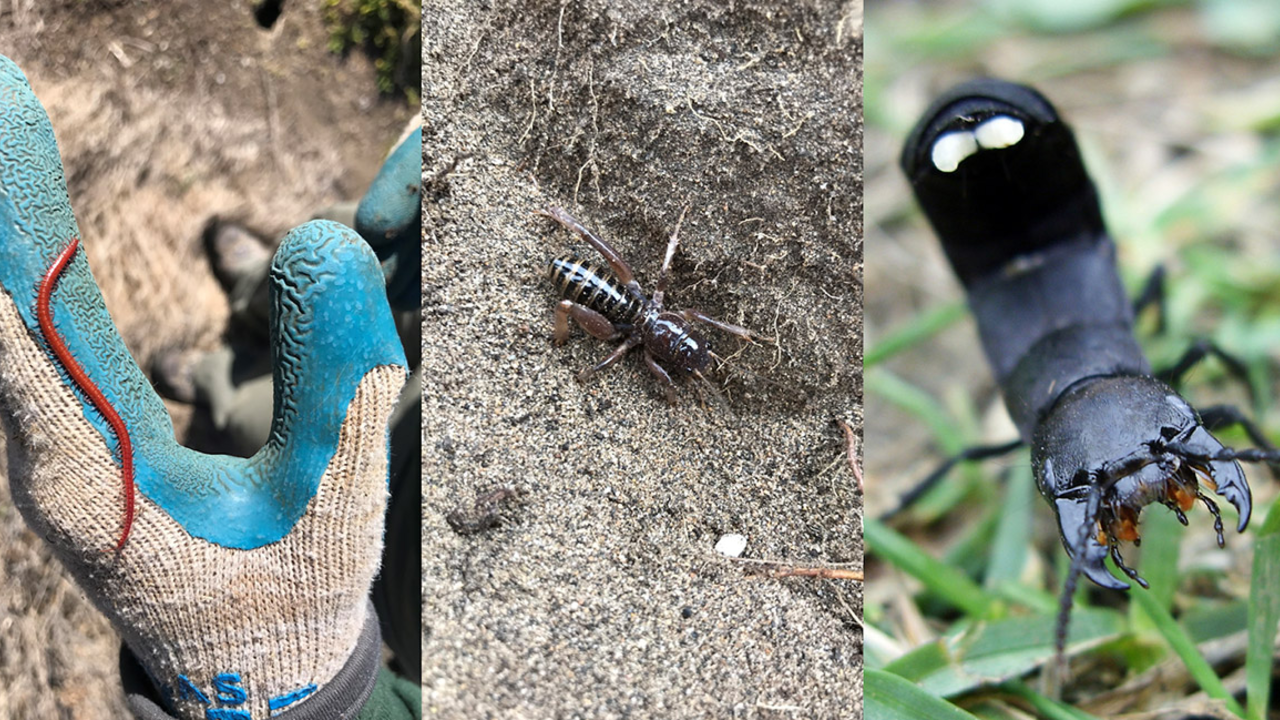Spot these fascinating insects in our parks
From the devil’s coach horse to the strigamia

Hello fellow park lovers! Make sure to keep an eye out for a few of these interesting insects found in our Golden Gate National Parks recently:
Strigamia (Strigamia maritima)
- A centipede! Meaning it has one pair of legs per body segment vs. two pairs of legs per body segment like millipedes do.
- This centipede is special in that it prefers coastal habitats over the woodland habitats most other centipedes prefer. It uses its dorsoventrally flattened body to maneuver over and under sandy soils with ease.
- Strigamia maritima is blind and seems to be missing genes used to code for light receptors and a functional circadian rhythm. Luckily, it spends most of its time underground and has little use for these adaptations.
- These centipedes play an extremely important role in ensuring a healthy and balanced ecosystem. They prey upon other coastal bug populations and the ecosystem relies on them to keep these other bug populations in check.
- This centipede, like most other centipedes, is venomous! But don’t let this frighten you. The toxins they administer are not nearly strong enough to cause a human any harm. Their bite might hurt, though! So make sure to wear hand protection if you plan on handling one, just to be safe.
Source: https://www.calacademy.org/explore-science/centipedes
Jerusalem cricket (Stenopelmatidae)
- Despite its common name, this insect is neither a true cricket nor is it native to Jerusalem.
- These insects are not venomous, but they do have strong jaws that can deliver a painful bite if tormented. Do not attempt to handle without gloves!
- Most species of the Jerusalem cricket have unique songs they use to attract mates during mating season. Unlike grasshoppers, katydids, and most other crickets who rub their legs and wings together to produce a mating call, this group of crickets pounds its abdomen against the ground to produce love songs.
The devil’s coach horse (Ocypus olens)
- This rove beetle is nocturnal and uses its time at night to hunt slugs, beetles, spiders, and other invertebrates.
- Due to their shortened wings, these beetles have a very flexible abdomen and will often use their abdomens to warn other potential predators of their discomfort. When threatened, this beetle will curl its abdomen upward and assume a position similar to that of a scorpion. If further threatened, these beetles may even secrete a foul smelling odor from glands found on the end of their abdomens.
- This insect plays another important role in our ecosystem by keeping other invertebrate populations in check and ensuring that nutrients are returned to the soil and available for other organisms to use.
- According to legends, some people believed that you would be cursed if the devil’s coach horse were to raise its abdomen in your direction.
Source: https://www.buglife.org.uk/bugs-and-habitats/devils-coach-horse